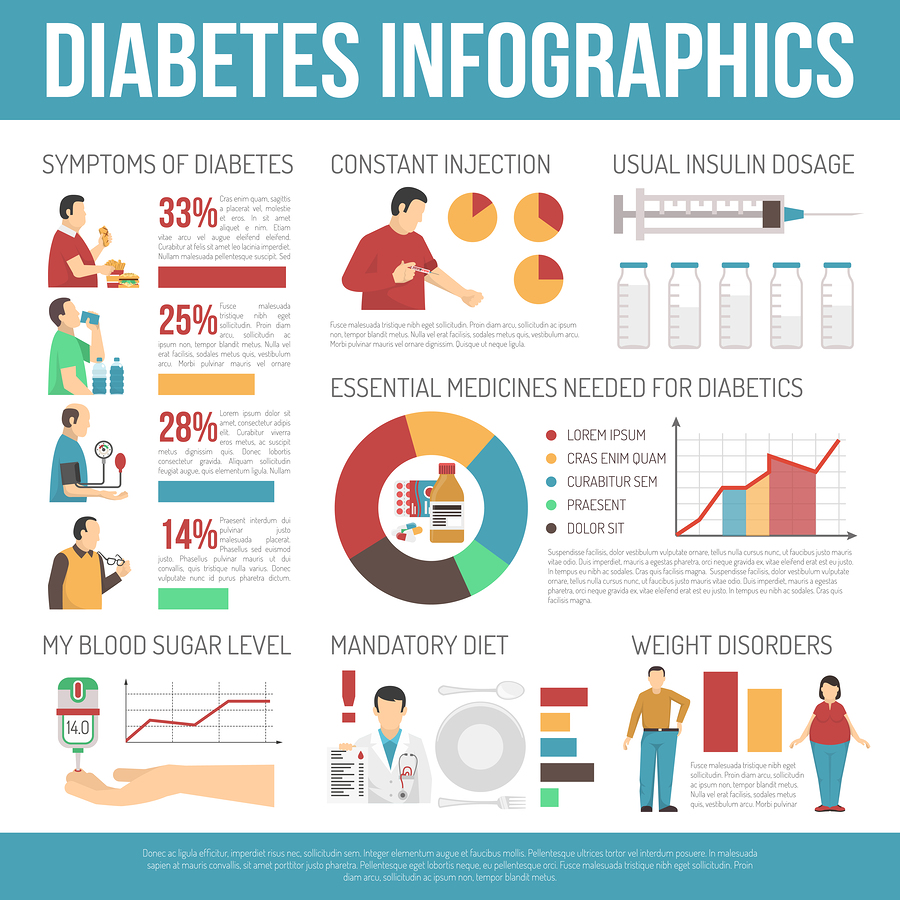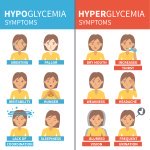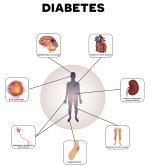Diabetes Diet Information

Getting good diabetes diet information is critical to your health and longevity! Diabetes mellitus is a chronic disease affecting one's ability to control or manage blood sugar internally. As a result of this, many sufferers of type 2 diabetes are managing or controlling their blood sugar levels through the constant injection of insulin.
But there is a better way! By eating a healthy diabetes diet and getting a little exercise, most people can stop having to use insulin and can even reverse their diabetes. With 1.6 million new cases reported per year, there is a growing need for accurate diabetic diet information.
Acquiring Diabetes Diet Information
Acquiring diabetes mellitus diet information is vital for this will give you the idea of eating the right kind of foods and their specific amounts. There is a lot of information in regards to a diabetic diet and they help diabetics manage the disease effectively.
Although there can be many causes for a person to develop type 2 diabetes, there is one known solution that stabilizes blood sugar levels for almost everyone. Even if you can’t completely reverse your type 2 diabetes, you can minimize the need to take insulin thereby improving your health, slowing the aging process and helping you feel great.
The Best Diets for Diabetics
Very few doctors will discuss diet at all when it is well known that avoiding high sugar foods as well as simple starches and refined foods is the best way to go when you have diabetes.
The most effective diets that diabetics can use in managing their blood sugar levels effectively are diets where carbohydrates are controlled. Because carbohydrates are broken down to glucose, controlling the intake through specialized diets is the best way to keep blood sugar levels from fluctuating dramatically.
There are quite a lot of popular diets that can be adapted to suit the dietary needs of a diabetic. Low-carb, ketogenic, high fiber, and high protein diets are the most common. Some of the best known authors that provide diabetes diet information are:
• Dr. Atkins
• Dr. Bernstein
• Dr. Mercola
• Dr. Furhman
• The Mayo Clinic
• Dr. Mosley
There are also diets that set a certain level of calories not to be exceeded as the more calories ingested, the more insulin needed to properly break down the resulting sugars. Current accepted diabetic diet information states that any diet where carbohydrates and resulting glucose are controlled would be considered a viable meal plan for an effective management of Diabetes.
Hints for a Successful Diabetes Diet
The two most vital aspects of a healthy diet are eating regular meals as closely as practically possible to the same time each day and eating the optimum amounts of the healthiest foods. If you are already on a healthy diet, there may not be many changes to be made.
However, if you are not on a healthy diet or do not eat regular meals at around the same time every day, you may have to make more changes in order to properly control your blood sugar levels. The key is to become very conscious of what your body's needs are and plan accordingly.
The following hints will give you some idea of what changes you need to make in your diet to successfully manage diabetes:
• Eating often - rather than 1-2 large meals per day, it is healthier. It is better to consume 3-4 small meals. This will allows you to eat in healthy proportions without feeling hungry throughout the day. To minimize blood sugar fluctuations, be sure to eat protein and a healthy fat with every meal.
• Alcohol - as with any healthy diet, your consumption of alcohol should be very limited. Alcohol has very high sugars content and, just as too much alcohol can effectively impair your body's motor skills and judgment ability, too much alcohol can also impair your body's ability to process glucose effectively. In the case of diabetics, alcohol can make you hypoglycemic (your blood sugar goes too low). Studies show that the more hypoglycemic episodes a diabetic has, the more likely they are to develop dementia.
• Vegetables - eating fresh vegetables will help your digestive system to perform optimally. Green vegetables, in particular are filled with vitamins and minerals as well as fiber to keep your stools soft. Be sure to eat your vegetables with a healthy fat so that your body can absorb the minerals from the veggies. You can eat an unlimited amount of green vegetables without spiking your blood sugar and they should be a corner stone of your diet.
• Sweets and Starches- consuming large amounts of sweets will cause your blood sugar levels to become more and more unstable. In order to control or reverse diabetes you must avoid all sweets and limit your overall carbohydrate intake to 50 grams a day or less. Here is a great article packed full of tips for managing type 2 diabetes.
• Whole-grain foods - whole-grain foods such as brown rice, wheat bread, and wheat pasta can spike blood sugar much the same way that simple carbs like white rice, white bread and white pasta can. Additionally, wheat causes health problems due to the way that it is farmed (sprayed with roundup so that all of the wheat dies off at the same time) and because it has been hybridized to have more berries which has also increased the amount of phytic acid and other anti-nutrients present. There are two really great books about the dangers of wheat: Wheat Belly: Lose the Wheat, Lose the Weight and Find Your Path Back to Health and Grain Brain: The Surprising Truth about Wheat, Carbs and Sugar – Your Brain’s Silent Killers.
• Fat - eating less fat is essential to an overall healthy diet and this allows your body to digest food better and absorb necessary nutrients, especially minerals. Many of your body’s hormonal processes are dependent of fat to work properly. This is especially true in the area of female and male hormones. Here is a great book about the importance of fats
• Carbohydrates - carbohydrates turn to glucose in your body and are necessary in limited quantities. The types of carbohydrates you consume are very important since the rate at which they turn into glucose can vary dramatically. If you have diabetes, it is best to limit yourself to eating only green vegetables with the occasional fruit dessert. The key to carbohydrates is learning when you should consume them and how much you should consume. See below for some of your favorite books on this subject.
Living Healthy
As is the case with almost any disease, living a healthy lifestyle is vital to successfully manage diabetes. All of the diabetes diet information in the world won’t help you unless you take a multipronged approach to getting healthy. An overall healthy diet not only increases your chance of successfully and effectively managing your diabetes, but allows your digestive system to perform correctly, and your brain to function properly. By effectively managing your blood sugar levels with a healthy diet and consistent exercise, you can prevent yourself from experiencing diabetes complications and even reverse diabetes (in the case of type 2 diabetics)
In Depth Diabetes Diet Information
Here are our favorite books about what you should and shouldn’t eat when you have diabetes. If you are interested in purchasing them thru Amazon, please consider clicking on these links since we will get a small commission that helps us continue this work and it won’t cost you anything extra.



New! Facebook Comments
What do you think? Share your thoughts below...